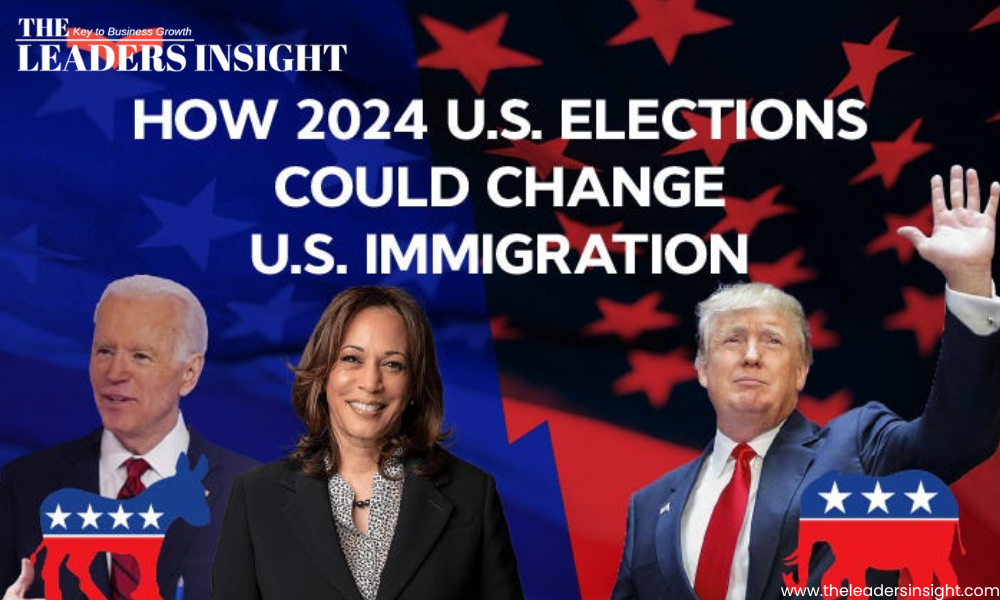Immigration Policy: A Central Issue in 2024 Election Debates

Immigration has become one of the most divisive and central issues in U.S. politics, particularly as the country approaches the 2024 presidential election. With debates over border security, migrant influx, and national security, the topic remains deeply polarizing. Both major candidates, Vice President Kamala Harris and former President Donald Trump, are positioning themselves to appeal to voters on the immigration front, but their approaches and rhetoric differ significantly.
The Immigration Debate: Border Security vs. Humane Policies
Border security and the treatment of migrants have long been at the heart of the immigration debate in the U.S. For many conservatives, the focus is on maintaining strict border enforcement, with the goal of preventing illegal entry and protecting American jobs and security. Trump has made border security a central tenet of his platform. He frequently refers to the construction of the border wall, a key promise of his 2016 campaign, and advocates for a return to the stricter policies that characterized his administration. Trump’s argument is based on national security, emphasizing that a secure border is essential for preventing crime and keeping the U.S. safe from potential threats such as drug trafficking and human trafficking.
On the other hand, Harris, representing the more liberal wing of the Democratic Party, has framed immigration as a humanitarian issue. The Biden administration, with Harris at the helm of its immigration policy, has taken a more inclusive stance, advocating for the protection of asylum seekers, increasing opportunities for legal immigration, and providing a pathway to citizenship for undocumented individuals already in the U.S. Harris has argued that the U.S. should focus on modernizing its immigration system, making it fairer and more efficient while ensuring that the country remains compassionate towards those fleeing violence or seeking better opportunities.
The Surge in Migrant Influx
The growing migrant influx at the southern border is a key reason why immigration is dominating national discussions. In recent years, there has been an increase in the number of individuals and families arriving from Central America, Mexico, and other countries, seeking asylum or better economic conditions. Many of these migrants are fleeing violence, poverty, and political instability in their home countries. The Biden administration, under Harris’s leadership, has faced considerable challenges in managing this influx, leading to overcrowded facilities and logistical bottlenecks.
Critics of the current administration argue that lenient policies have contributed to this surge, making the U.S. an attractive destination for those seeking to enter the country illegally. They argue that without stronger border enforcement, the system will continue to be overwhelmed, leading to more challenges in national security, resource allocation, and the integration of migrants into American society.
Conversely, Harris and other Democrats argue that the increase in migrants is a symptom of deeper systemic issues in the global economy and that the U.S. must address the root causes of migration, such as poverty and violence in Central America. The Biden administration has focused on providing aid to these regions and working with international partners to improve living conditions, reduce corruption, and support local economies.
The Role of Immigration in Key Battleground States
Immigration policy is playing an especially significant role in key battleground states, many of which have large immigrant populations. States like Arizona, Texas, Florida, and Nevada are expected to be pivotal in the 2024 election. In Texas and Arizona, for instance, a significant portion of the population is either directly affected by immigration issues or has strong opinions on how the government should handle the situation.
In Texas, Trump has continued to hold strong support, particularly in the rural areas and among voters who believe in stricter immigration policies. His rhetoric on border security resonates in regions where residents feel the impacts of illegal immigration firsthand. In contrast, cities like Houston and Dallas, with significant immigrant populations, have been more supportive of Democratic candidates who emphasize compassionate immigration reform.
Nevada and Florida, with their diverse populations and booming economies, also face immigration-related concerns. Florida, with a large Cuban-American community, has a different dynamic where immigration is a hot-button issue, but often framed around different concerns such as political refugees. In Nevada, where many migrant workers play a significant role in industries like hospitality and agriculture, Harris’ stance on labor rights and immigration has found some traction.
The Political and Legal Implications of Immigration Policy
The political implications of immigration are significant, as both parties use the issue to rally their bases. Trump’s rhetoric on building walls and expelling undocumented immigrants appeals to voters who view immigration as a threat to American jobs and security. In contrast, Harris’ focus on comprehensive immigration reform and her push for a more humane and compassionate approach resonates with more progressive voters and those who prioritize human rights and inclusivity.
Legal challenges also play a significant role in shaping immigration policy. The Biden administration has been criticized for its handling of policies like the end of the “Remain in Mexico” program and its attempts to reverse Trump-era immigration reforms. Court rulings have frequently blocked these policy shifts, making it difficult for the administration to fully implement its desired changes.
As Election Day approaches, immigration is expected to be a key point of debate in the presidential race. While Trump continues to promote a hardline approach to border security, Harris is pushing for a reformative vision that addresses both security and humanitarian concerns. The final outcome of the election will likely depend on which vision resonates more with the voters in swing states.
